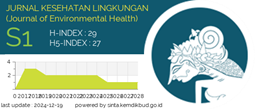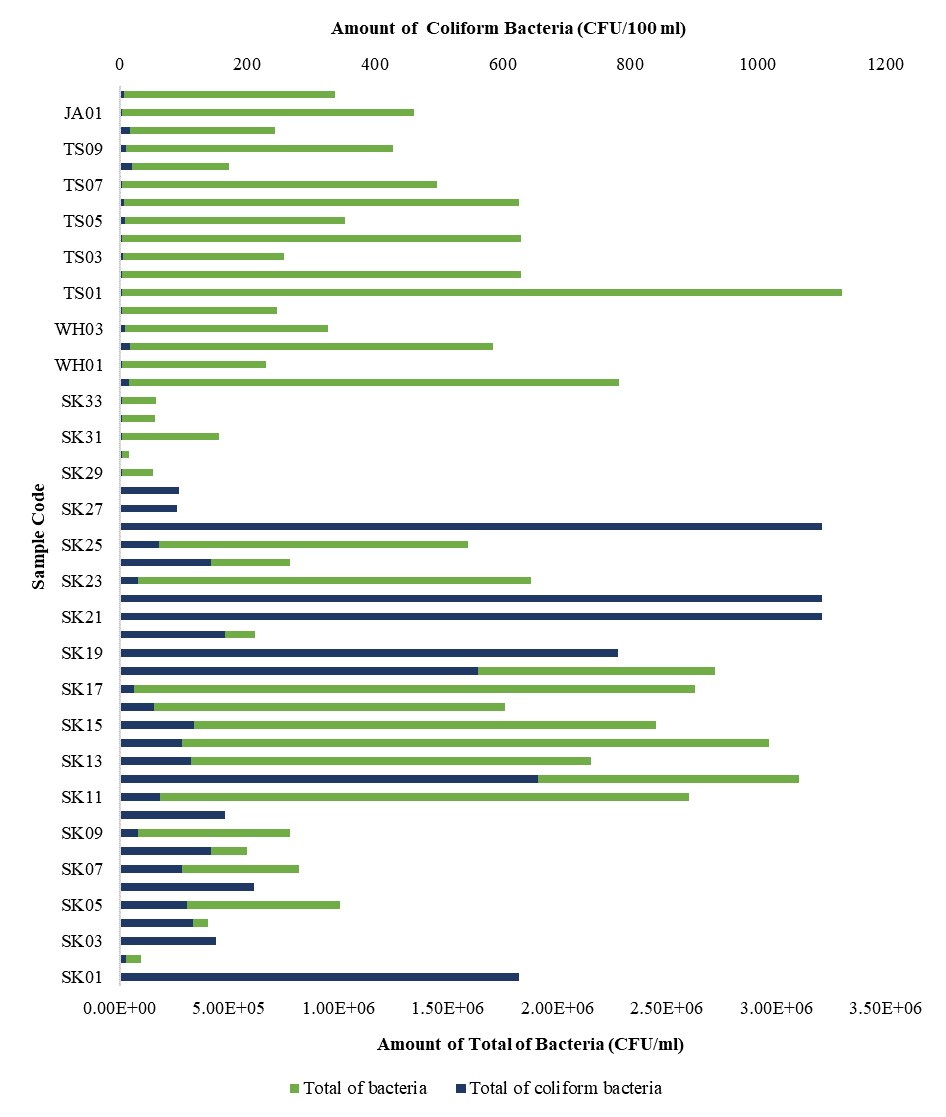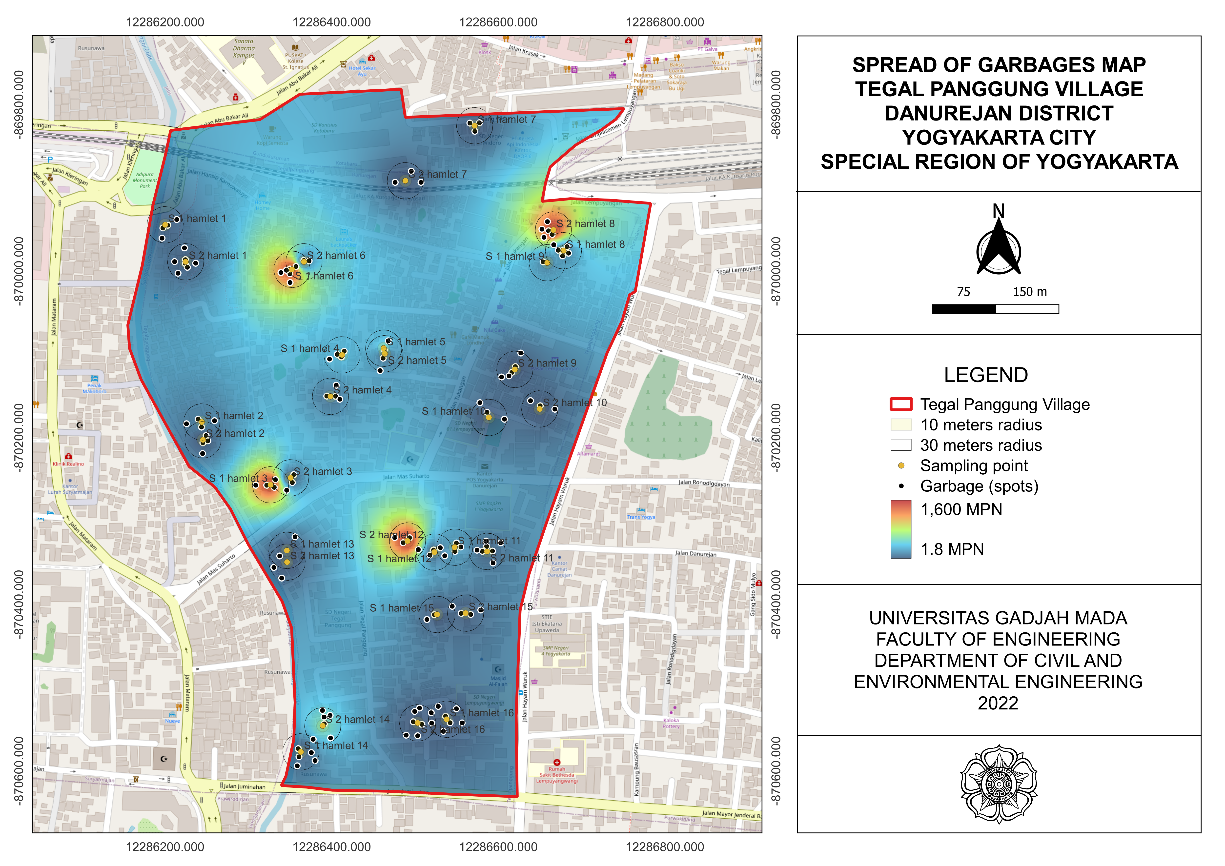The Impact of Covid19 Pandemic on Online Learning Process in the College at Southeast Sulawesi
Downloads
Introduction: The health crisis that occurred due to the Covid19 pandemic has an impact on the education sector. Universities in Southeast Sulawesi issued a policy to study at home during the Covid19 emergency response period. The existence of the study at home policy caused the change in the learning. The learning process cannot be done directly and is transferred through online learning. The research objective was to determine the impact of the Covid19 pandemic of the online learning process of universities in Southeast Sulawesi. Method: The type of research is a descriptive research and the technique is purposive sampling. The sample in this study were 170 students from several universities in Southeast Sulawesi. Data collection techniques by distributing the questionnaires using google form. Result and Discussion: The results show that the application of online learning is a new experience that provides convenience and flexibility in studying without having to go to campus. Regardless, online learning is still experiencing obstacles. The availability of inadequate network access resulted in unclear communication and instructions in lectures. The ability of the economy to fulfill internet quotas hinders student participation in taking online lectures. Excessive workload makes student concentration decrease. Conclusion: The government needs to ensure the availability of adequate internet network access in all regions and campuses provide subsidized internet quota for students. So, the lecture activities can be run smoothly and as expected.
Kementerian Kesehatan Republik Indonesia. Pedoman Kesiapsiagaan Menghadapi Coronavirus Disesase (Covid-19). Jakarta: Kementerian Kesehatan Republik Indonesia; 2020 [cited 2020 July 13]. Available from: https://infeksiemerging.kemkes.go.id/
World Health Organization (WHO). WHO Coronavirus Disease (COVID-19) Dashboard. Jenewa: World Health Organization; 2020 [cited 2020 July 13]. Available from: https://covid19.who.int
Rothan HA, Byrareddy SN. The epidemiology and pathogenesis of coronavirus disease (COVID-19) outbreak. Journal of Autoimmunity. 2020;102433: 1-4. https://doi.org/10.1016/j.jaut.2020.102433
Kementerian Kesehatan Republik Indonesia. Situasi Terkini Perkembangan Coronavirus Disease (COVID-19). Jakarta: Kementerian Kesehatan Republik Indonesia; 2020 [cited 2020 July 13]. Available from: https://www.kemkes.go.id/article/view/20031900002/Dashboard-Data-KasusCOVID-19-di-Indonesia.html
Dinas Kesehatan Provinsi Sulawesi Tenggara. Info Covid-19 Sulawesi Tenggara. Kendari: Dinas Kesehatan Provinsi Sulawesi Tenggara; 2020 [cited 2020 July 13]. Available from: https://dinkes.sultraprov.go.id/info-covid-19-sultra/
Zhang W, Wang Y, Yang L, Wang C. Suspending classes without stopping learning: China's education emergency management policy in the COVID-19 outbreak. Journal of Risk and Financial Management. 2020;13(3): 1-6. https://doi.org/10.3390/jrfm13030055
Kementerian Pendidikan dan Kebudayaan Republik Indonesia. Surat Edaran Mendikbud. Jakarta: Kementerian Pendidikan dan Kebudayaan Republik Indonesia; 2020 [cited 2020 July 13]. Available from: https://www.kemdikbud.go.id/main/blog/2020/03/se-mendikbud-pembelajaran-secara-daring-dan-bekerja-dari-rumah-untuk-mencegah-penyebaran-covid19
Arora AK, Srinivasan R. Impact of pandemic COVID-19 on the teaching –learning process: A study of higher education teachers. Prabandhan: Indian Journal of Management. 2020;13(4). http://dx.doi.org/10.17010/pijom%2F2020%2Fv13i4%2F151825
Bell S, Douce C, Caeiro S, Teixeira A, Martin-Aranda R, Otto D. Sustainability and distance learning: a diverse European experience?. Open Learning: The Journal of Open, Distance and E-Learning. 2017;32(2): 95-102. https://doi.org/10.1080/02680513.2017.1319638
Stein RA. COVID"19 and Rationally Layered Social Distancing. International Journal of Clinical Practice. 2020;74(7): e13501. https://doi.org/10.1111/ijcp.13501
Pratiwi ER, Wonorahardjo S, Arief M. Partisipasi Online Dalam Pembelajaran Community Of Inquiry (Coi) Pada Materi Distilasi. Jurnal Pendidikan: Teori, Penelitian, dan Pengembangan. 2016;1(7): 1410-1416. http://dx.doi.org/10.17977/jp.v1i7.6585
SCH Hoi, D Sahoo, J Lu, P Zhao. Online Learning: A Comprehensive Survey. arXiv preprint arXiv:1802.02871. 2018. https://arxiv.org/abs/1802.02871
Gunawan H. Dasar-Dasar Metodologi Penelitian Pendidikan. Bandung: Fakultas Tarbiyah dan Keguruan UIN Sunan Gunung Djati; 2017.
Nurmila N. Optimalisasi Pembelajaran Daring di UIN SGD Bandung dalam Upaya Menghentikan Penyebaran Virus Corona. Lembaga Penelitian dan Pengabdian kepada Masyarakat. 2020. http://digilib.uinsgd.ac.id/id/eprint/30559
Zein M. Peran guru dalam pengembangan pembelajaran. Journal UIN-Alauddin. 2016;5(2): 274-285. https://doi.org/10.24252/ip.v5i2.3480
Abdullah R. Pembelajaran dalam perspektif kreativitas guru dalam pemanfaatan media pembelajaran. Lantanida Journal. 2016; 4(1): 35-49. https://doi.org/10.22373/lj.v4i1.1866
Anggrawan A. Analisis Deskriptif Hasil Belajar Pembelajaran Tatap Muka dan Pembelajaran Online Menurut Gaya Belajar Mahasiswa. MATRIK: Jurnal Manajemen, Teknik Informatika Dan Rekayasa Komputer. 2019;18(2): 339-346. https://doi.org/10.30812/matrik.v18i2.411
Mulyaningsih I, Nurfiana N, Zahidin MA. "Pengembangan Pembelajaran Berbasis Riset Di Jurusan Tadris Bahasa Indonesia FITK, IAIN Syekh Nurjati Cirebon”. Journal Indonesian Language Education and Literature. 2017;2(2): 121-135. http://dx.doi.org/10.24235/ileal.v2i2.1388
Moorhouse BL. Adaptations to a face-to-face initial teacher education course ‘forced'online due to the COVID-19 pandemic. Journal of Education for Teaching. 2020;1-3. https://doi.org/10.1080/02607476.2020.1755205
Naserly MK. Implementasi Zoom, Googl Classroom, Dan Whatsapp Group dalam Mendukung Pembelajaran Daring (Online) Pada Mata Kuliah Bahasa Inggris Lanjut (Studi Kasus
Pada 2 Kelas Semester 2, Jurusan Administrasi Bisnis, Fakultas Ekonomi dan Bisnis, Universitas Bina Sarana Informatika Jakarta. Aksara Public. 2020;4(2):155-165. http://aksarapublic.com/index.php/home/article/view/417
Windhiyana E. Dampak Covid-19 terhadap kegiatan pembelajaran online di sebuah perguruan tinggi kristen di Indonesia. Perspektif Ilmu Pendidikan. 2020;34(1): 1-8. https://doi.org/10.21009/PIP.341.1
Iftakhar S. Google Classroom: What Works and How?. Journal of Education and Social Sciences. 2016;3(1): 12-18. http://jesoc.com/wp-content/uploads/2016/03/KC3_35.pdf
Safitri A, Yuliana N, Alfian A, Taradipa E, Aryani AS. The Effectiveness of Online Learning: The Implementation of Hand Hygiene as a COVID-19 Prevention of the Cognitive and Affective Capabilities of Nursing Students. Indonesian Journal of STEM Education. 2020;2(1): 19-26. https://journal.publication-center.com/index.php/ijse/article/view/114
So S. Mobile instant messaging support for teaching and learning in higher education. The Internet and Higher Education. 2016;31: 32-42. https://doi.org/10.1016/j.iheduc.2016.06.001
Kumar V, Nanda P. Social Media in Higher Education. International Journal of Information and Communication Technology Education (IJICTE). 2019;15(1): 97-108. https://doi.org/10.4018/ijicte.2019010107
Kuntarto E. Keefektifan Model Pembelajaran Daring dalam Perkuliahan Bahasa Indonesia di Perguruan Tinggi. Indonesian Language Education and Literature. 2017;3(1):99-110. http://www.syekhnurjati.ac.id/jurnal/index.php/jeill/article/view/1820
Milman NB. Distance Education. In International Encyclopedia of the Social & Behavioral Sciences: Second Edition. 2015;567-570. https://doi.org/10.1016/B978-0-08-097086-8.92001-4
Bower M, Dalgarno B, Kennedy GE, Lee MJ, Kenney J. Design and implementation factors in blended synchronous learning environments: Outcomes from a cross-case analysis. Computers & Education. 2015;86: 1-17. https://doi.org/10.1016/j.compedu.2015.03.006
Adhe KR. Pengembangan Media Pembelajaran Daring Matakuliah Kajian PAUD di Jurusan PG PAUD Fakultas Ilmu Pendidikan Universitas Negeri Surabaya. JECCE (Journal of Early Childhood Care and Education). 2018;1(1): 26-31. https://doi.org/10.26555/jecce.v1i1.3
Firman F, Rahayu S. Pembelajaran Online di Tengah Pandemi Covid-19. Indonesian Journal of Educational Science (IJES). 2020;2(2): 81-89. https://doi.org/10.31605/ijes.v2i2.659
Purwanto A, Pramono R, Asbari M, Hyun CC, Wijayanti LM, Putri RS. Studi Eksploratif Dampak Pandemi COVID-19 Terhadap Proses Pembelajaran Online di Sekolah Dasar. EduPsyCouns: Journal of Education, Psychology and Counseling. 2020;2(1): 1-12. https://ummaspul.e-journal.id/Edupsycouns/article/view/397
Uscher-Pines L, Schwartz HL, Ahmed F, et.al. School practices to promote social distancing in K-12 schools: review of influenza pandemic policies and practices. BMC Public Health. 2018;18(1): 1-13. https://doi.org/10.1186/s12889-018-5302-3
Khasanah DRAU, Pramudibyanto H, Widuroyekti B. Pendidikan Dalam Masa Pandemi Covid-19. Jurnal Sinestesia. 2020;10(1): 41-48. https://sinestesia.pustaka.my.id/journal/article/view/44
Astuti P, Febrian F. Blended Learning Syarah: Bagaimana Penerapan dan Persepsi Mahasiswa. Jurnal Gantang. 2019; 4(2): 111-119. https://doi.org/10.31629/jg.v4i2.1560
Husamah. Pembelajaran Bauran (Blended Learning). Jakarta: Prestasi Pustaka; 2015
Pangondian RA, Santosa PI, Nugroho E. Faktor-Faktor yang Mempengaruhi Kesuksesan Pembelajaran Daring dalam Revolusi Industri 4.0. In Seminar Nasional Teknologi Komputer & Sains (SAINTEKS). 2019;1(1): 56-60. https://www.prosiding.seminar-id.com/index.php/sainteks/article/view/122
Panigrahi R, Srivastava PR, Sharma D. Online learning: Adoption, continuance, and learning outcome”A review of literature. International Journal of Information Management. 2018;43: 1-14. https://doi.org/10.1016/j.ijinfomgt.2018.05.005
Mallinen S. Teacher effectiveness and online learning. In book: Teaching & Learning Online (pp. 139-149). London: Routledge; 2018.
Sudjana. Penilaian Hasil Proses Belajar Mengajar. Bandung: PT. Remaja Rosdakarya; 2016.
2. Formal legal provisions to access digital articles of electronic journal are subject to the provision of the Creative Commons Attribution-ShareAlike license (CC BY-NC-SA), which means that Jurnal Kesehatan Lingkungan is rightful to keep, transfer media/format, manage in the form of databases, maintain, and publish articles.
3. Published manuscripts both printed and electronic are open access for educational, research, and library purposes. Additionally, the editorial board is not responsible for any violations of copyright law.
JKESLING by UNAIR is licensed under a Creative Commons Attribution-ShareAlike 4.0 International License.







































